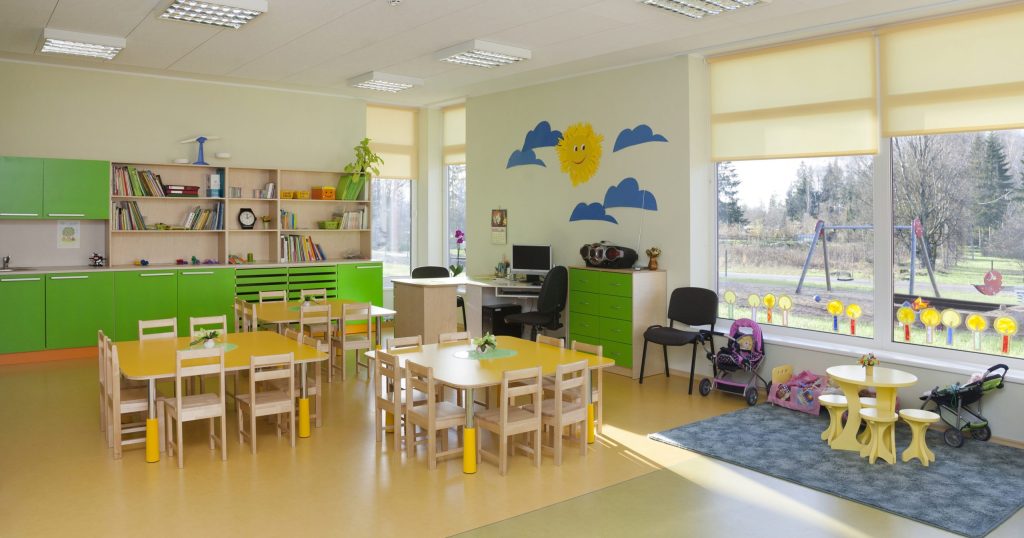Luckily, times have changed quite dramatically since then, thanks to virtual reality or VR. Using VR in education, both school and college students can learn complicated concepts easily and in a fun way. The experience is extremely lifelike, colorful and engaging, allowing students to process the information and apply it better. So, if you are looking for a reason why virtual reality in education is the next big thing, here are 7 that will convince you, not just one.
1. Simplify complex concepts
Traditional textbook teaching or oral lectures cannot go very far when it comes to educating students about how a brain tumor is operated, or an inverter is repaired, or a perfume is put together. But VR can make such complicated concepts or processes crystal clear as it is realistic, interactive, and the next best thing to seeing everything in person. By using virtual reality, teachers won’t have to waste time in explaining the same ideas over and over. Students will be able to absorb information and retain it better too.
2. Grab attention immediately
This is one of the top benefits of virtual reality in education. If students get the chance to explore the Amazon rainforest in all its lush green beauty or the interiors of a space shuttle up close, right from where they are, imagine how fast they will get hooked to VR lessons. Vibrant images, panoramic views, realistic navigation, a three-dimensional effect, and zooming options make virtual reality a whole new ball game. Remember that VR can be used while crafting college virtual tours as well, so that potential students realize that you are into the latest tech and your courses will be exciting too. It is a great way to whet their appetites even before they enroll.
See Also – 5 Effective Ways to Improve Student Enrollment at Your College
3. Minimize distraction the easy way
It is easy for students to get distracted when they need to go through pages of plain text with a few static images thrown in here and there. Just listening to lectures without anything to intrigue their minds can be dull too. Luckily, one of the major advantages of virtual reality in education is that it encourages students to imagine, see the world in its true form, and find out more. And it goes without saying that less distraction means better understanding and better grades.
4. Let students learn anytime from anywhere
The pandemic has emphasized the importance of virtual reality in education like nothing else, since students need to keep achieving their educational milestones without compromising safety. Which means, remote learning needs to be flexible yet effective. And the good news is that students can learn different lessons anytime and from anywhere, with VR. They don’t need the conventional classroom environment or predefined schedules to understand and excel in multiple subjects. With virtual reality, students can concentrate on lessons whenever they are in the perfect frame of mind, even on the go.
See Also – Top Ways to Make College Virtual Visits Meaningful
5. Don’t let time and space become constraints
It’s true that taking your class on a trip to Antarctica or Pluto can be super expensive or impossible as of now. But with virtual reality, students can watch how glaciers break, learn about the polar ecosystem, or study why Pluto is uninhabitable! Distance simply doesn’t matter in this case. Or VR can also allow students to travel back in time when dinosaurs ruled the earth or when the Inca civilization was at its peak.
6. Allow students to err and learn
By introducing virtual reality in education, training sessions can become way more exciting, engaging and safe. For instance, students can use virtual reality to learn what to do if a car is on fire, how to mix different chemicals to create paints, how to operate heavy machinery at a construction site, or for that matter, how to fly a plane. Though at some point, they will have to take practical lessons, VR can pave the way for a more confident experience. Plus, it can present different real-world scenarios to students, give them the freedom to make mistakes, and learn without causing any real damage.
7. Give students a taste of their future careers
Whether your students intend to become doctors, lawyers, engineers, firefighters, oceanographers or librarians, virtual reality can help them understand what the work environment looks like in each case. They will know what their day-to-day life will be like, what kind of situations they might need to address, and how rewarding it can be. In short, VR in education can help them make career choices with ease and work towards their goals in an informed way.
So, are you ready to give virtual reality applications in education a sincere shot for your school, college or university? Email us at info@massinteract.com and let us make your lessons more engaging, interesting and effective with virtual reality.
Read Also – 5 Creative Ways to Increase College Enrollment






















